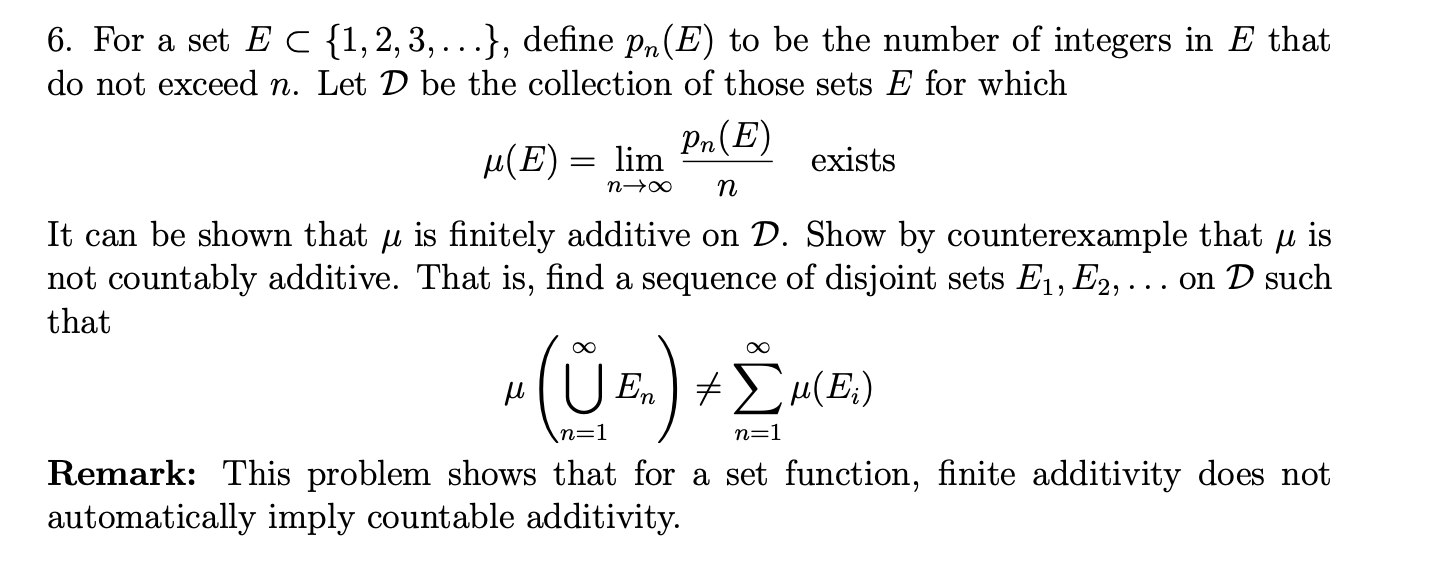Answered step by step
Verified Expert Solution
Question
1 Approved Answer
6. For a set EC {1, 2, 3,...}, define pn (E) to be the number of integers in E that do not exceed n.

6. For a set EC {1, 2, 3,...}, define pn (E) to be the number of integers in E that do not exceed n. Let D be the collection of those sets E for which (E) = lim Pn (E) exists nx n It can be shown that is finitely additive on D. Show by counterexample that is not countably additive. That is, find a sequence of disjoint sets E1, E2,... on D such that En (Ei) n=1 Remark: This problem shows that for a set function, finite additivity does not automatically imply countable additivity.
Step by Step Solution
There are 3 Steps involved in it
Step: 1

Get Instant Access to Expert-Tailored Solutions
See step-by-step solutions with expert insights and AI powered tools for academic success
Step: 2

Step: 3

Ace Your Homework with AI
Get the answers you need in no time with our AI-driven, step-by-step assistance
Get Started


